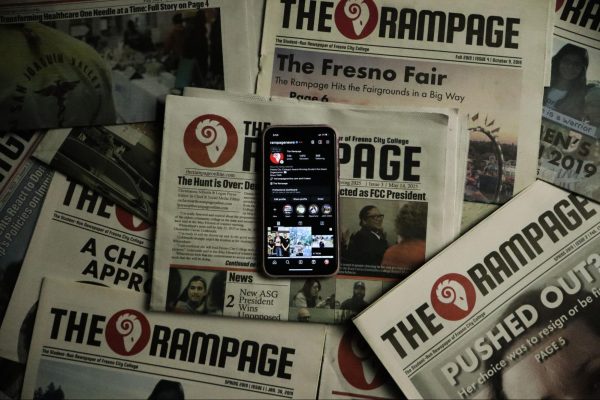Media Impact on Voters Undeniable
There are two types of democracy: one in which the public is able to have meaningful participation in their own affairs and the access to information is open and free, and the second conception, which is where the public must be prevented from managing their own affairs and the means of information must be narrowly and tightly controlled.
Though it is strange to think of democracy in this sense, the second type is the one that has prevailed since the times of the Founding Fathers.
The end of the presidential race is near and the media has given us certain ideas about the candidates, and their projections of who will win. While news outlets devote a lot of time to stories about Hillary Clinton’s personal and public life and Donald Trump’s scandals and shocking rhetoric, it seems most major news companies are supporting Clinton for president.
The New York Times, which is often regarded as the pinnacle of excellence in journalism, is continually publishing articles such as “Donald Trump and Other Animals” and “The Lies Trump Told,” that lambast him and his followers. Letters such as “Hillary Clinton: My Plan for Helping America’s Poor” written by Clinton herself, and articles like “The Bitch America Needs”, make it clear they want Hillary in the White House.
News companies are now owned by multinational billion dollar corporate giants that have one goal in mind: to make money. Unfortunately, news operations are a source of information, but have also become a big business. It would make sense that major media companies would support Clinton, who has had a long and friendly history with Wall Street and national corporate interests.
Since as early as the 1930s, regulations on newspapers, radio and eventually television companies were lifted. This allowed giant corporations to buy up thousands of news outlets across the nation. Because of this media consolidation, 90 percent of what we read, watch and listen to is owned by six major media companies.
Trump’s antics play into exactly what media companies want; his offensive language and erratic behavior sells newspapers and get people to click on web articles. Media companies are more likely to play up Trump’s comments on women, or the sex scandals of Clinton’s husband, than information about military spending or information that support higher taxes for the rich.
It is virtually impossible for candidates to reach a national audience without being covered by major news outlets, and the money it takes to run a national campaign has gone into the billions. Even Democratic candidate Bernie Sanders, who gained quite a popular following during the primary season and held rallies with thousands of supporters, didn’t get as much coverage as Trump or Clinton.
However, this makes sense in our current system. Sanders was trying to produce change that would affect the profits of the elites, many of whom have business ties and investments with media companies.
We are now at a point where the information the public needs to make decisions on how society ought to be run is provided by companies that don’t want that very public to be too informed. News information and opinions must be limited in order to make sure the people are not too aware of what the people in power are doing.
It is up to us, the public, to seek out the information that will give us a better picture of our leaders, and not allow it to be drowned out in a sea of trivial and sensational news.






